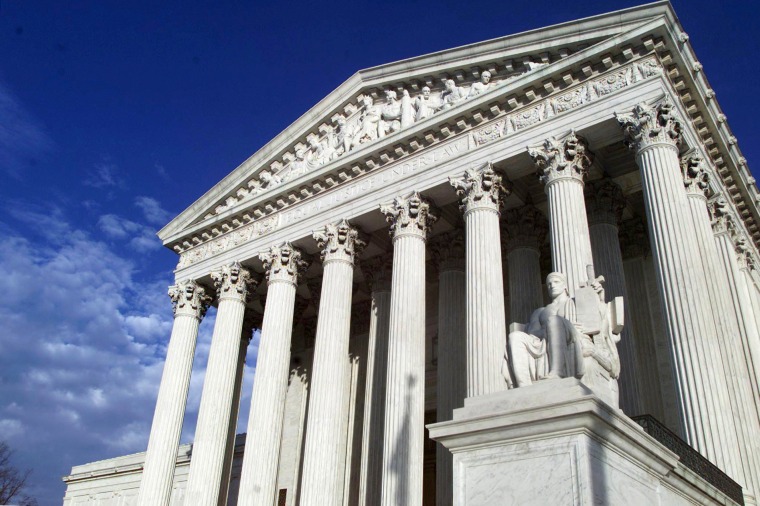On last night's show, Sen. Chris Coons (D-Del.) said something to Rachel, almost in passing, that stood out for me:
"I fear we as a nation have not fully reckoned with the impact that a 6-3 conservative court will have on so many aspects of our lives."
I have the same fear, which is why I've been glad to see others raise the same point. UC Irvine professor Rick Hasen, an election-law expert, wrote earlier this month, "The American people do not realize the freight train coming toward them with a 6-3 conservative Supreme Court."
Vox's David Roberts added soon after, "I would estimate around 98% of the general public and even 90+% of politically engaged Democrats underestimate just what a 6-3 conservative majority on [the Supreme Court] means. It endangers all kinds of stuff most Americans don't even know is up for debate."
Ask the typical voter about fights surrounding the Supreme Court, and if he or she has any answer, you'll probably hear a reference to Roe v. Wade. And that's not at all trivial: most Americans support the reproductive-rights precedent, and it is currently in great peril as a result of Republicans successfully moving the high court even further to the right.
But as the nation comes to terms with the consequences of this shift, that's really just the start of a lengthy list. Everything from health care access to environmental safeguards, voting rights to labor rights, campaign finance laws to the separation of church and state will almost certainly be dramatically affected by Republican-appointed justices.
And what about the "stuff most Americans don't even know is up for debate"? Earlier this month, the Supreme Court's two most far-right justices expressed an interest in revisiting marriage equality.
Justice Clarence Thomas has also taken an interest in the Lochner precedent, which involves a 1905 ruling that the government has practically no authority regulating private-sector excesses. It's a perspective that puts things like minimum-wage laws in doubt.
Meanwhile, during her confirmation hearings, Justice Amy Coney Barrett wouldn't even say whether she believes Medicare and Social Security are constitutionally permissible.
If there's a debate in the coming months about the merits of expanding the Supreme Court, and quite possibly the entirety of the federal judiciary, keep these threats in mind.
